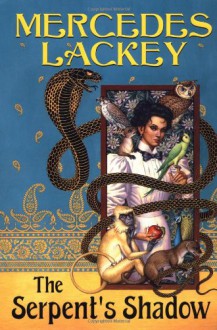Maya Witherspoon had lived most of the first twenty-five years of her life in her native India. As the daughter of a prominent British physician and a Brahmin woman of the highest caste, she had known only luxury. Trained by her father in the medical arts since she was old enough to read, she...
show more
Maya Witherspoon had lived most of the first twenty-five years of her life in her native India. As the daughter of a prominent British physician and a Brahmin woman of the highest caste, she had known only luxury. Trained by her father in the medical arts since she was old enough to read, she graduated from the University of Delhi as a Doctor of Medicine by the age of twenty-two. Welcomed into her father’s lucrative practice, she treated many of the wives and daughters of the British military personnel who made up a large percentage of their patients in the colonial India of 1909. But the science of medicine was not Maya’s only heritage. For Maya’s aristocratic mother Surya, had not just defied her family, friends and religion to marry Maya’s father, she had turned her back on her family’s powerful magical traditions as well. For her mother was a sorceress—a former priestess of the mystical magics fueled by the powerful and fearsome pantheon of Indian gods. Though Maya felt the stirring of magic in her blood, her mother had repeatedly refused to train her. “I cannot,” she had said, her eyes dark with distress, whenever Maya asked. “Yours is the magic of your father’s blood, not mine….” Surya had never had the chance to explain this enigmatic statement to her daughter, before cholera claimed her life. Yet Maya suspected that something far more sinister than the virulent disease had overcome her powerful mother. But it was Maya’s father’s death shortly thereafter which confirmed her darkest suspicions. For her father was killed by the bite of a krait, a tiny venomous snake, and in the last hours of her mother’s life, in the seeming delirium of her fever, Surya had repeatedly warned Maya to beware “the serpent’s shadow.” With the sudden loss of her father, Maya knew she must flee the land of her birth or face the same fate as her parents. In self-imposed exile in London, Maya surrounded herself with every protection possible. All the magic Maya knew had been learned by covertly observing her mother, and by cobbling this knowledge together with the street-magic gleaned from a few genuine fakirs. Her workings were a mixture of instinct, extrapolation, and trial-and-error. Crude, but somewhat effective, her spells let Maya hide her household behind a wall of secrecy in a poorer section of the city. Here, in a small but adequate house she lived with only the most loyal of her mother’s servants, and her mother’s seven unusual “pets”—if you could use such a word for creatures who seemed far more like friends. For Charan, the little monkey, Rajah, the peacock, Mala, the falcon, Sia and Singhe, the mongooses, Rhadi, the parrot, and Nisha, the owl seemed far too sentient to be ordinary animals. Maya knew that these seven unusual and loving companions had been in some way special to her mother, but their secrets were hidden to her, perhaps forever. In her new home she fought the dual prejudices against her sex and her race to continue in her medical profession. Only her high scholastic abilities and her extreme determination enabled her to meet with any success. She managed to place herself in a minor position at a prestigious hospital while she pursued her own medical passions: helping the poor at a tiny clinic where they welcomed any doctor, and setting up a small, controversial practice which specialized in “female complaints” and offered “absolute discretion.” But Maya knew that she could not hide forever from the vindictive power which had murdered her parents. She knew in her heart that even a vast ocean couldn’t protect her from “the serpent’s shadow” which had so terrified her mother. Her only hope was to find a way to master her own magic: the magic of her father’s blood. But who...
show less






 12 years ago
12 years ago




 13 years ago
13 years ago